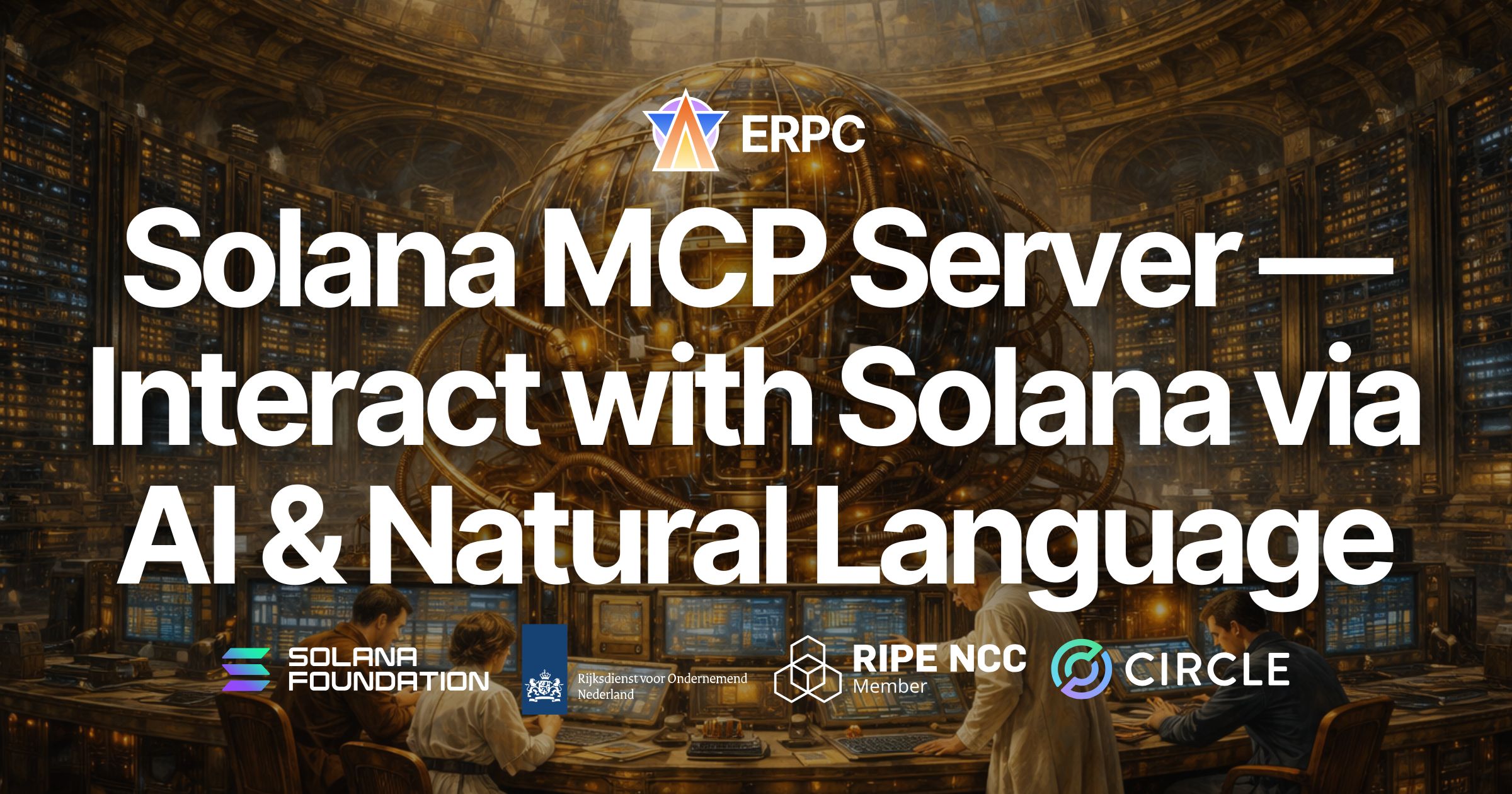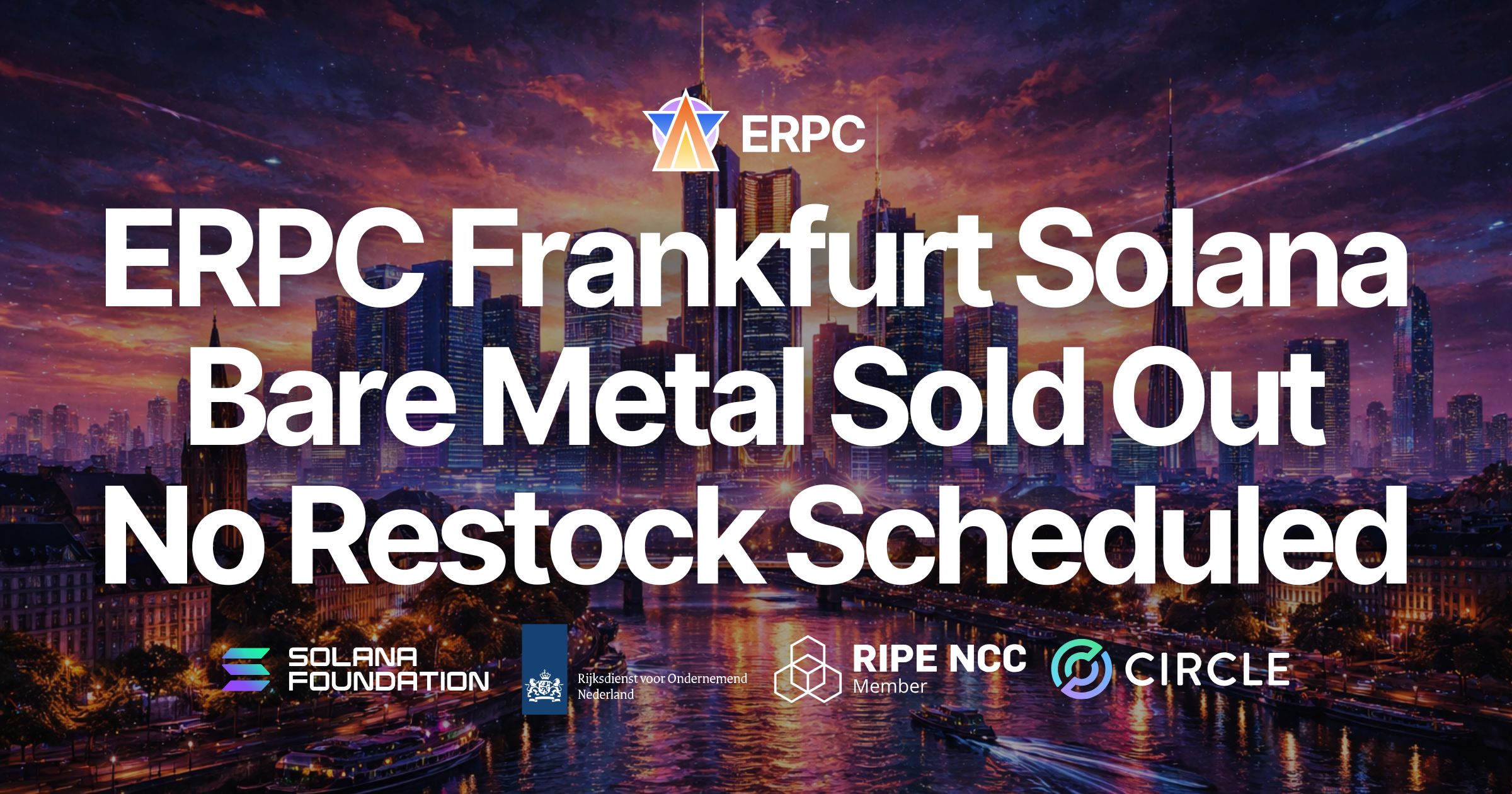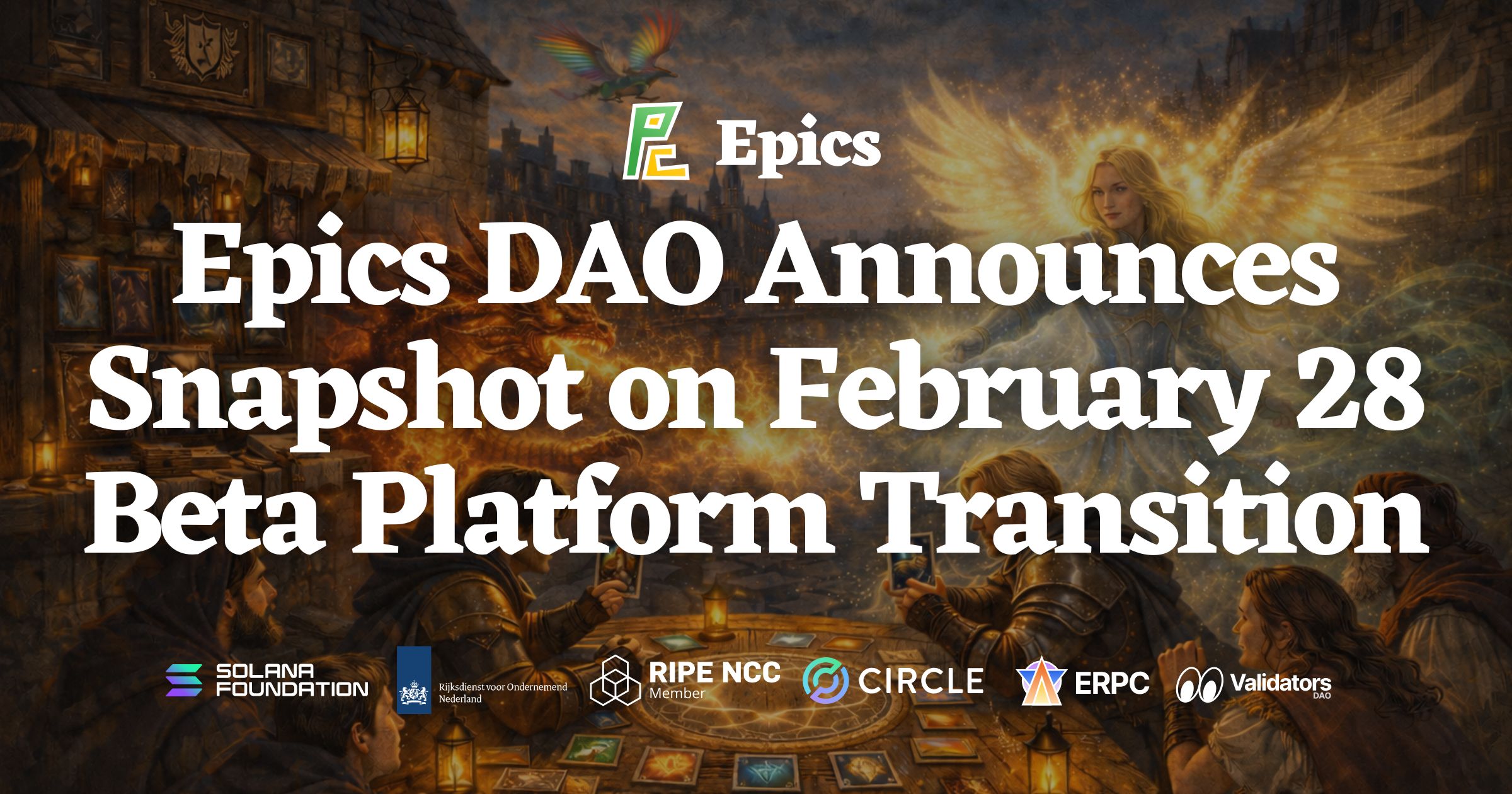ERPC Launches Solana Firedancer-Based RPC on Devnet and Testnet — Achieving Lighter Performance and Higher Efficiency, Now Accepting Mainnet Beta Test Applications
ERPC Launches Solana Firedancer-Based RPC on Devnet and Testnet — Achieving Lighter Performance and Higher Efficiency, Now Accepting Mainnet Beta Test Applications
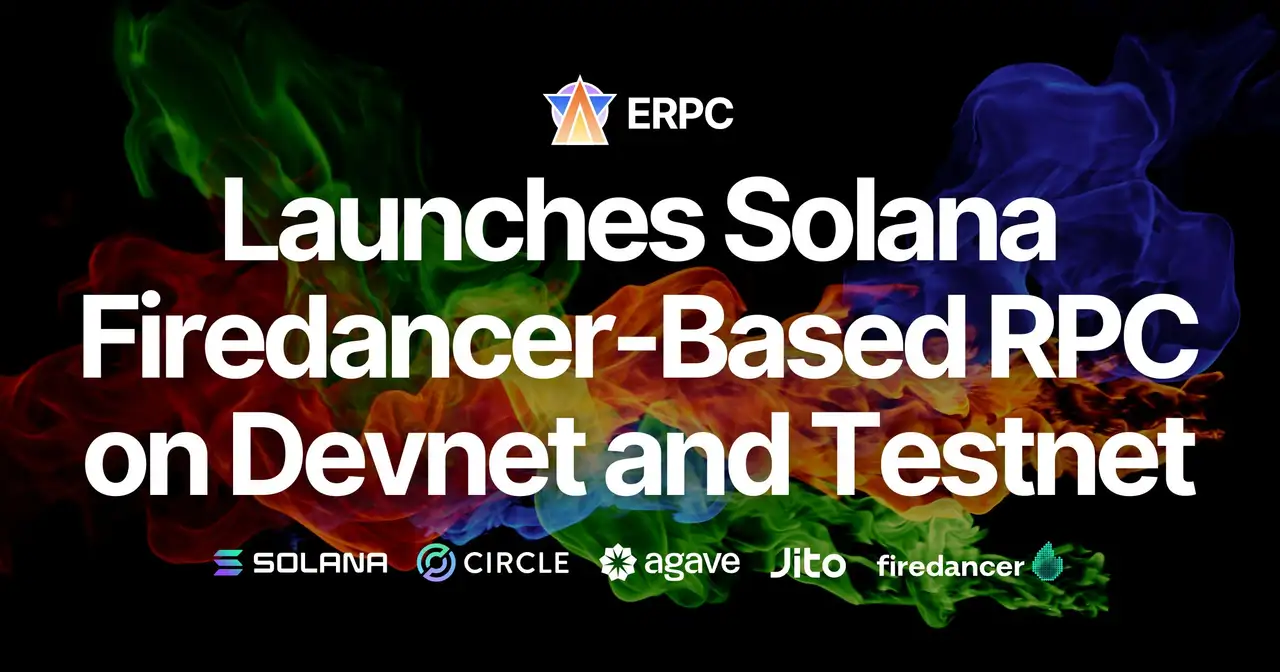
ELSOUL LABO B.V. (Headquarters: Amsterdam, Netherlands, CEO: Fumitake Kawasaki) and Validators DAO have announced that ERPC has officially launched its new RPC infrastructure incorporating elements of the next-generation Solana client, Firedancer, on both Devnet and Testnet. Compared to the traditional Agave-based structure, this new implementation has demonstrated significant improvements in efficiency and resource optimization, and preparations for deployment on Mainnet Beta are now accelerating.
This development represents the next step in ERPC’s ongoing pursuit of speed, stability, and low latency. From early-stage development to production environments, ERPC continues to evolve its infrastructure to deliver a consistently high-quality Solana experience for all users.
What is Firedancer
Firedancer, developed by Jump Crypto, is a new Solana validator client designed to operate independently from Agave. Its goal is to enhance network efficiency, minimize hardware overhead, and deliver both exceptional throughput and ultra-low latency. The Solana Foundation is actively supporting its rollout, and full release preparations are steadily progressing.
Currently, the Frankendancer configuration—a hybrid setup combining Firedancer’s networking layer with Agave’s consensus engine—is being used in production environments. This staged approach enables gradual adoption of Firedancer components while maintaining network stability and compatibility across the ecosystem.
ERPC has implemented this Frankendancer-based architecture on both Devnet and Testnet, confirming stable operation. Compared to the Agave configuration, overall processing efficiency has improved, and the system now runs stably with less than half the memory usage. This achieves both lighter operation and faster response times, allowing smoother performance and greater stability across development and testing phases.
Firedancer: https://jumpcrypto.com/firedancer/
Step-by-Step Deployment Toward Mainnet Beta
Following stable operation on Devnet and Testnet, ERPC will gradually roll out this Firedancer-based RPC architecture to Mainnet Beta. The beta test will focus on verifying the stability of the Frankendancer setup under full production-scale traffic and load. While ensuring reliability and safety, ERPC will continue to push for further performance gains and lower latency.
Applications for participation in the Firedancer Mainnet Beta Test are now open, with priority given to existing ERPC users. Developers and teams interested in experiencing next-generation Solana RPC performance can contact us via the Validators DAO Official Discord.
- Validators DAO Official Discord: https://discord.gg/C7ZQSrCkYR
Solana RPC Bundle Plan

Many developers begin with Geyser gRPC to utilize Solana’s real-time data streams. It’s easier to implement because it provides pre-decoded data, has numerous examples available, and offers a lower learning curve.
Advanced users, however, often choose Shredstream for its superior speed. In practice, many teams prefer to run stable gRPC-based applications while simultaneously developing with Shredstream to leverage its faster data flow. ERPC’s Bundle Plan was created specifically to meet this professional demand.
Until now, developers who wanted to “go faster” often faced technical and cost barriers. The Bundle Plan removes these barriers by including Shredstream at a lower combined price for those already using RPC and gRPC. The bundled pricing effectively makes Shredstream more affordable, encouraging experimentation without risk.
Start by building your base application with RPC + gRPC, then integrate Shredstream within the same environment to transition into higher-performance development. Advanced teams can run Shredstream standalone to directly ingest both processed and confirmed data, though this requires custom client development. The Bundle provides a ready and reliable access path to begin exploring that advanced layer.
The included gRPC connection has no filtering limits and also supports Devnet and Testnet during development, providing a seamless environment for testing and scaling Solana products.
The ERPC Bundle Plan is a practical solution optimized for both Solana development and production deployment.
For inquiries or migration support, please reach out via the Validators DAO Official Discord.
- Validators DAO Official Discord: https://discord.gg/C7ZQSrCkYR
Premium Ryzen VPS
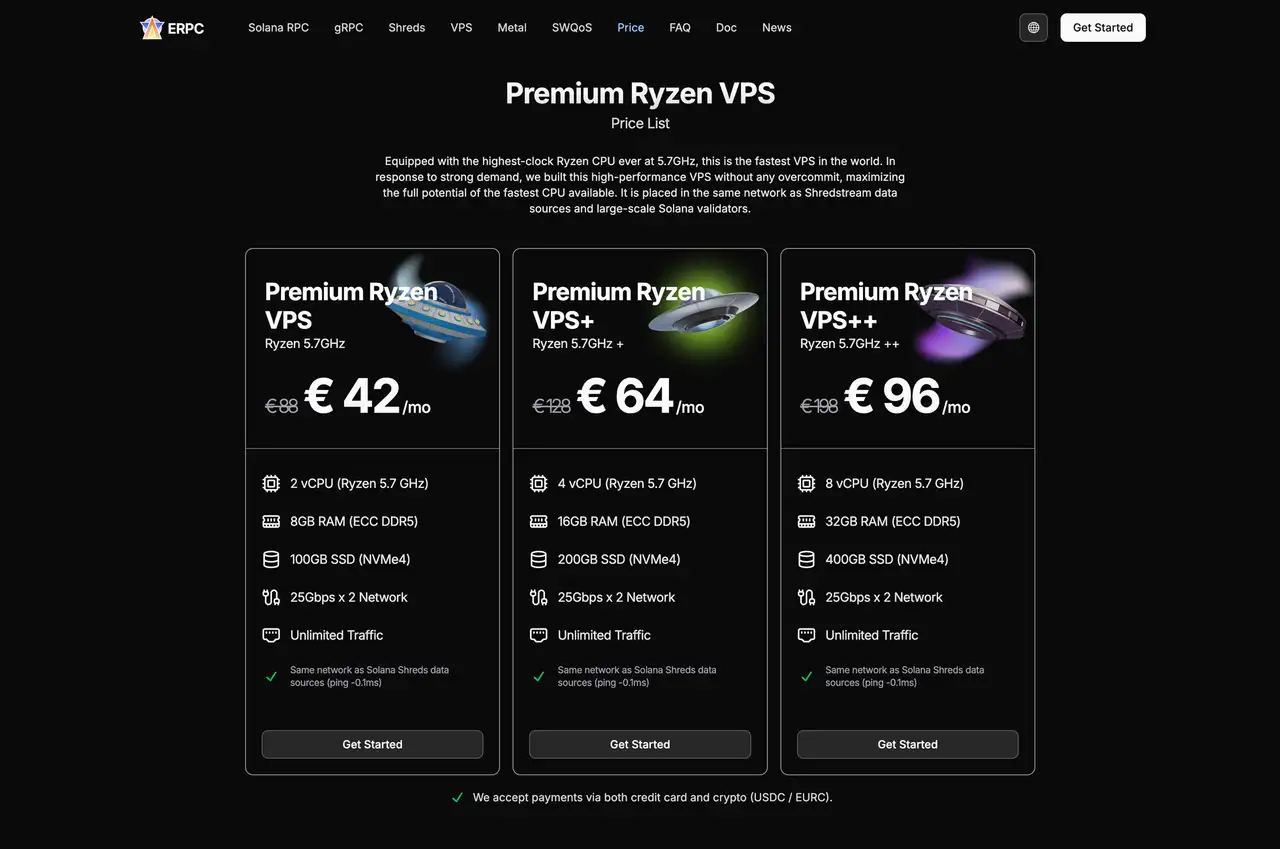
The Premium Ryzen VPS, running within the same network as ERPC, features world-class hardware: 5.7GHz high-clock Ryzen CPUs, ECC DDR5 memory, NVMe4 storage, and dual 25Gbps networking. Its no overcommitment design ensures near bare-metal stability even in a virtualized environment.
Located in the same data centers as major Solana validators and Jito Shredstream nodes, it provides zero-distance connectivity, eliminating latency caused by internet routing. This balanced configuration of performance and cost efficiency has earned strong recognition from numerous Solana projects.
- Validators DAO Official Discord: https://discord.gg/C7ZQSrCkYR
Development Structure and SLV Open Source
Through SLV, our core open-source initiative, we have enabled instant Solana node provisioning, automated updates, and zero-downtime migrations.
After countless test runs, we have achieved continuous improvement across both ERPC and validator operations. Working closely with trusted data center partners, we return these advancements directly to our users and community stakeholders.
Going forward, we aim to expand the ecosystem where validators, RPC providers, traders, and Web3 projects collaborate seamlessly—driving efficiency and resilience across the entire Solana network through shared incentives.
SLV simplifies the setup of RPC and node configurations, including Firedancer-based systems, allowing anyone to easily participate in testing and validation.
We will continue to evolve SLV Open Source as the foundation of this ecosystem.
We will continue to evolve SLV Open Source as the foundation of this ecosystem.
SLV GitHub: https://github.com/ValidatorsDAO/slv
Challenges Addressed by ERPC and Validators DAO
- Frequent transaction failures and latency fluctuations common in standard RPC environments
- Performance throttling imposed by many infrastructure providers
- The strong influence of network distance on communication quality
- Limited access to high-quality infrastructure for smaller projects
During the development of our open-source Solana NFT card game project Epics DAO, we faced the same challenge many teams encounter: the lack of accessible, high-performance Solana development environments. In response, we built our own platform and now provide ERPC and SLV based on that expertise.
In the financial sector especially, reliability is critical—any delay or error directly impacts the user experience. Solana’s distributed validator architecture and Web3’s inherent complexity make it difficult to maintain both visibility and stability, leaving many projects struggling with unpredictable latency and instability.
We provide the high-performance foundation needed to overcome these issues, improving both the developer and user experience across the Solana ecosystem.
ERPC and SLV are key pillars in that mission.
ERPC and SLV are key pillars in that mission.
- ERPC Official Website: https://erpc.global/en
- SLV Official Website: https://slv.dev/en
- elSOL Official Website: https://elsol.app/en
- Epics DAO Official Website: https://epics.dev/en
- Validators DAO Official Discord: https://discord.gg/C7ZQSrCkYR


